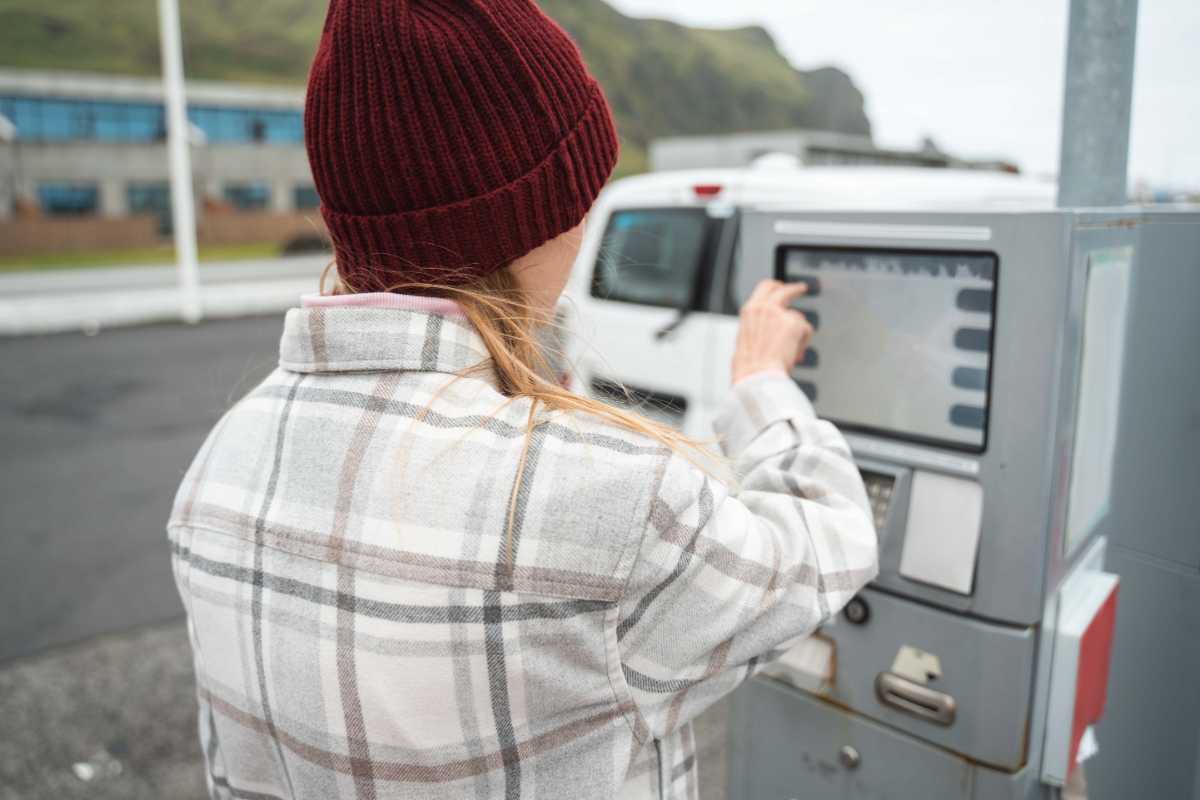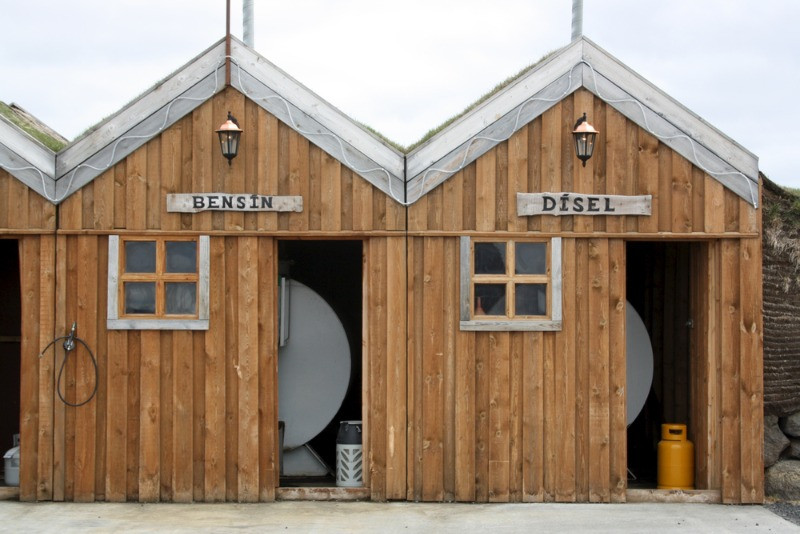Let’s face it: knowing how much gas is in Iceland before you arrive can save you from that 'Wait, how much?!' moment at the pump. Driving here isn’t cheap, and with long stretches between gas stations, running low isn’t something you want to risk.
Some places charge way more than others, so stopping at the wrong station could mean paying extra for no reason. If you’re hitting the Ring Road or just driving around town, knowing where to fill up after renting a car in Iceland can make a real difference. This guide breaks down how to find the cheapest fuel and simple ways to stretch your budget.
Current Gas Prices in Iceland
If you think gas prices at home are bad, you will stop complaining once you see what we pay. The Global Petro Prices website ranks it as the second most expensive place for fuel, just after Hong Kong.

Latest Gasoline Prices
Right now, gas prices in Iceland are ISK 315 per liter ($2.25 per liter). That is much higher than the global average of $0.82 per liter. Prices have stayed fairly steady over the past year, with only a 0.1% decrease compared to last year.
Latest Diesel Prices
Diesel is even more expensive. The current price is ISK 326 per liter ($2.40 per liter), more than double the world average of $1 per liter. Unlike gasoline, diesel prices have increased by 1.2% over the past year.
Understanding Gas Prices in Iceland
We get it. You just got a rude awakening about the gas prices in Iceland, and now you are wondering why Iceland’s gas prices are so ridiculous. There is no single reason. It is a mix of geography, taxes, and economic factors that keep fuel costs among the highest in the world. Here is a breakdown of what drives those prices up.

Iceland’s Location Makes Everything More Expensive
Being a remote island in the North Atlantic has its plus sides, but cheap fuel is not one of them. Iceland does not make its own oil, so everything has to be imported. That means extra transportation costs, import fees, and logistical headaches that get passed straight to the consumer. The result? Higher prices than most other countries.
Taxes Take a Huge Cut
Gas in Iceland is taxed more than in most places, and the government keeps raising those taxes. Right now, more than half of what you pay at the pump is not for fuel at all. Around 53% of the total gasoline price goes to the state, which is an increase from 49.7% two years ago. That money comes from several different taxes, including:
- VAT (Value Added Tax): 19%
- Special excise duty: 17%
- Excise duty on gasoline: 11%
- Carbon tax: 6%

And those numbers are not locked in place. The government has increased fuel-related taxes several times over the last few years.
- Carbon tax has risen by 86% since 2020
- Excise tax on gasoline has gone up 20% since 2020
- Special excise tax on gasoline has also increased by 20% since 2020
These tax hikes are meant to encourage drivers to switch to electric vehicles, but for most travelers, renting a gas-powered car is still the only realistic option.
Economic Factors Keep Prices High
A few other things play into why you are paying so much at the pump:
- Currency Exchange Rates: The value of the Icelandic króna affects how much it costs to import fuel.
- Inflation: Rising prices across the board also hit the fuel industry.
- Global Oil Prices: While oil prices have been relatively stable, they still influence base fuel costs.
- Retailer Markups: About 23% of what you pay at the pump goes to fuel retailers.
- Environmental Policies: Iceland has strict carbon reduction measures that impact fuel pricing.
- Limited Competition: Iceland relies on a single fuel importer, Equinor, a Norwegian company that supplies all of Iceland’s fuel distributors.

Where to Find the Cheapest Gas Stations in Iceland Without Getting Ripped Off
You clearly get the picture by now that gas in Iceland is not cheap, but where you fill up makes a huge difference. Some Icelandic gas stations charge way more than others, and if you are not paying attention, you could end up spending a lot more than necessary. The key is knowing where to stop and when to fill up on your road trip.
Cheapest Gas Stations in Reykjavik and Nearby Towns
If you need to fill up your tank, Reykjavik is the best place to get it done before hitting the road. Prices here are lower than in most other parts of the country, and there are a few stations where you will get the best deals.
- Costco has the cheapest gas price in Iceland, about 20 percent lower than the national average. On average, you can expect to pay around USD 2 for a liter of petrol. The downside? You need a Costco membership to fill up here. If you already have one, it is a no-brainer.
- Orkan is another solid option. With 72 self-service stations across Iceland, they tend to keep their prices lower than most competitors. In Reykjavik, their gas prices are often between USD 2.10 to USD 2.30 per liter.

- Atlantsolía has 25 stations across Iceland, with 18 in Reykjavik. Their prices are usually similar to Orkan, making them a reliable choice.
- ÓB is another budget-friendly brand. ÓB stations in Reykjavik usually charge between USD 2.10 to USD 2.30 per liter for petrol.
Fuel Prices Outside Reykjavik
Once you leave the capital, gas prices go up fast. You will still find somewhat reasonable prices in certain towns, but if you are heading into remote areas, plan ahead.
- Akureyri has some of the lowest fuel prices outside Reykjavik. Atlantsolía stations here sell gas for around USD 2.15 per liter.
- Selfoss and Borgarnes are also good places to fill up, with prices similar to Akureyri.
The real problem starts when you get into the Westfjords or East Iceland. Gas stations become rare, and the prices climb. Expect to pay around USD 2.30 per liter, sometimes more. The biggest mistake travelers make is assuming there will be another station soon. That is not always the case.

Estimating Fuel Needs for Your Iceland Road Trip
Fuel costs in Iceland add up fast, so knowing what to expect can save you from nasty surprises. A standard rental car burns about 8 liters per 100 kilometers, but how much you spend depends on the route, road conditions, and your driving style. A full loop around the Ring Road (1,322 km/821 mi) will cost you over USD 220 in gas. The Golden Circle (300 km/186 mi) is far cheaper, but prices at the pump fluctuate.
Maximizing Fuel Efficiency
Take a little advice from us: that dollar you save at the pump could be a beer, a meal or groceries bought at any Icelandic supermarket. Here’s what we suggest:
Choose a Car That Won’t Drain Your Wallet
Some cars sip fuel. Others guzzle it. A small, fuel-efficient rental is, like the Toyota Aygo, which is your best bet for saving money, but if you are heading off paved roads, a 4x4 is non-negotiable. Diesel models are often cheaper to run, so consider one if it fits your route.

Drive Smart, Not More
Fuel vanishes fast when you zigzag across the country with no plan. Instead of backtracking, explore one region at a time and cut unnecessary mileage. If you are camping, pick spots near your next stop to reduce driving time and fuel use.
Stop Wasting Gas
Bad driving habits burn fuel faster than you think. Keep a steady speed, use cruise control, and avoid flooring it at every green light. Extra weight also kills efficiency, so ditch the unnecessary luggage.
Seasons Change Fuel Use
Summer is fuel-friendly. Roads are clear, and long daylight hours let you drive more efficiently. Winter in Iceland is brutal. Snow, ice, and strong winds force you to slow down and burn more gas. A 4x4 is mandatory, and short daylight hours limit how much ground you can cover each day. Spring and fall bring wild weather shifts, so road closures and detours can wreck your fuel budget. Always check the weather and road conditions before heading out.

Use Petrol Checking Apps
Before you pass a gas station, check apps like GSMbensín that show real-time fuel prices. Stations in Iceland tend to cluster in towns, so if one has high prices, another may be just around the corner. Avoiding costly fill-ups can save you a lot over time.
Additional Resources for a Smooth Iceland Road Trip
If you've finally decided to make the trip to our beautiful country, then here are a few things you need to know to help you navigate Iceland’s roads with ease.
Guide to Driving the Ring Road in Iceland
The Ring Road (Route 1) is Iceland’s ultimate road trip. It circles the entire country and has got some of the most spectacular scenery in the world. It takes 10-14 days to drive the entire circuit. If you want to see more of Iceland, you can combine this trip with visits to other places that are not on Route 1.

Just keep this in mind:
- Summer is the best time to drive it. From June to August, you get mild weather, fewer road closures, and nearly endless daylight.
- Expect at least 30 hours of driving. That is without counting scenic detours, which you will absolutely want to take.
- Clockwise or counterclockwise? Either works, but clockwise builds up to the most dramatic scenery.
- No 4x4 is needed unless you are venturing into the Highlands, where F-roads require a proper off-road vehicle.
- Book accommodations in advance. Peak season runs from mid-June to mid-September, and hotels and guesthouses fill up fast.
Understanding Iceland Car Rental Insurance
Iceland’s roads can be unpredictable, so understanding rental car insurance saves you from unexpected costs.

- Third-Party Liability (TPL) is mandatory and included in every rental.
- Collision Damage Waiver (CDW) limits how much you pay if the car gets damaged.
- Super CDW (SCDW) further reduces your liability, sometimes close to zero.
- Gravel Protection is worth it if you plan to drive on rural roads, where loose stones can chip your paint and windshield.
- Always read the fine print. Some damages, like river crossings or undercarriage damage, are not covered by standard insurance.
Navigating Tunnels in Iceland
Iceland’s road tunnels make driving easier, but they come with a few quirks you need to know.

- There are 11 tunnels in Iceland. The Hvalfjörður tunnel, once a toll road, is now free to use.
- Some tunnels are single-lane. Strákagöng in the northwest requires pulling into a passing place if it is on your right.
- Lights must always be on. Even when the sun is shining or the tunnel is well-lit, keeping your headlights on is a legal requirement.
- Speed limits are lower inside tunnels. Expect limits around 70 km/h in two-lane tunnels and even lower in single-lane ones.
- If your car breaks down, use the emergency phone. Pull over safely and contact help immediately.
Frequently Asked Questions About The Price of Gasoline in Iceland
How much is petrol in Iceland?
Petrol prices in Iceland are among the highest in the world. Right now, you can expect to pay around 315 ISK per liter ($2.27 USD), but prices fluctuate depending on location.
How much does it cost to fill a tank in Iceland?
It depends on your car but for a typical rental (50-liter tank), filling up costs around 15,750 ISK ($113 USD). Bigger vehicles, especially 4x4s, will be even more expensive.
What is petrol called in Iceland?
At Icelandic gas stations, petrol is labeled 'Bensín,' while diesel is simply 'Dísel.'

How do you pay for petrol in Iceland?
Most stations are self-service and require a credit or debit card with a PIN. Some take cash inside during staffed hours, but a working card is your safest bet.
Where does Iceland get its fuel?
Iceland imports all of its fuel, mostly from Norway. Despite being energy-independent for electricity and heating, the country has no oil refineries, so all petrol and diesel come from abroad.
How Much Is Gas in Iceland? Final Tips for a Cost-Effective Trip
Yes, how much petrol costs in Iceland can be a rude awakening, but it should not stop you from enjoying the road trip of a lifetime. Planning ahead makes all the difference. Get a fuel-efficient rental, strategic fuel stops, and smart driving habits will help you cut costs without limiting your experience.
Gas prices vary, so checking rates before filling up can save you money. Iceland’s landscapes are worth every króna, and with the right approach, you can explore without overspending. Rent a car in Iceland from us today and make the most of your trip.


 By
By


